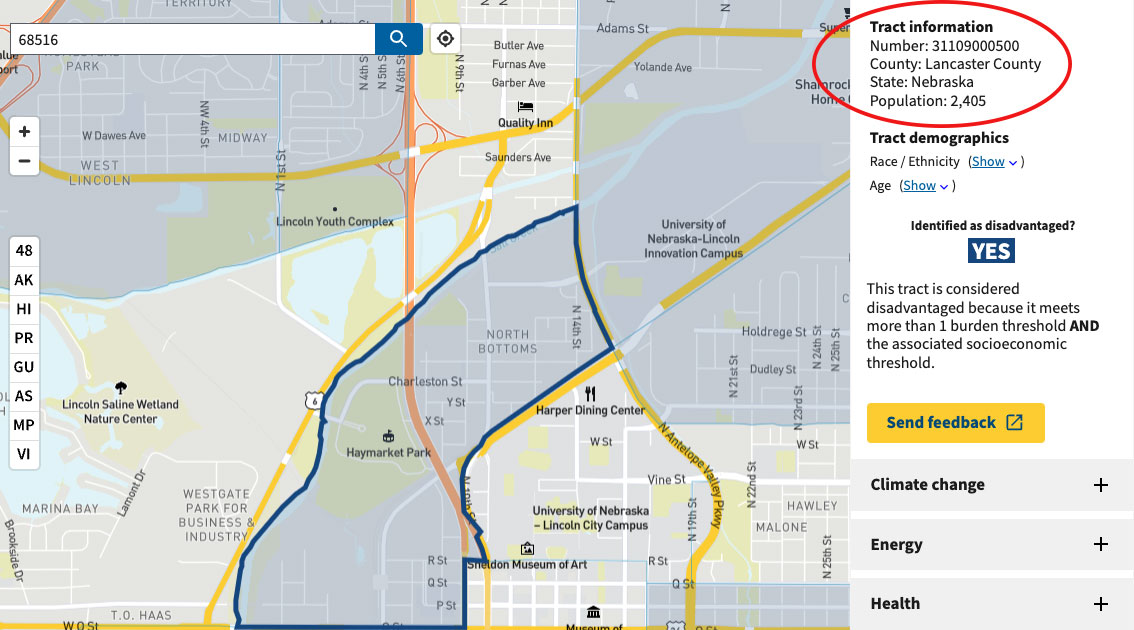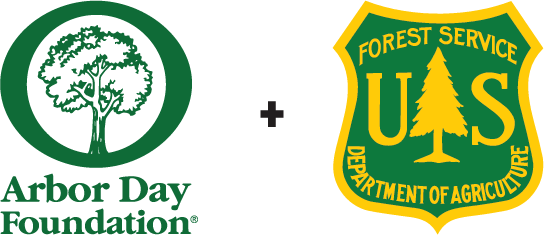Community Roots Program
Arbor Day Foundation Funding Opportunity
Applications are now closed.
Community-based nonprofit organizations are eligible
The Arbor Day Foundation (ADF) is pleased to be a recipient of grant funding from the USDA Forest Service Urban & Community Forestry Program, under the Inflation Reduction Act (Funding Opportunity #: USDA-FS-2023-UCF-IRA-01). We will serve as a national pass-through partner of the Forest Service, providing funding for community-based nonprofit organizations, as defined below.
The Arbor Day Foundation is positioned to drive investments in tree planting and maintenance, planning, and capacity building in selected communities. Subawardees will have access to a cohort of peers and experts within the Arbor Day Foundation and the Urban and Community Forestry Society (UCFS)’s networks and the opportunity to connect with mentors/coaches from around the nation. Subawardees will also be invited to attend the annual Partners in Community Forestry conference to further develop their urban forestry network.
The Period of Performance for this opportunity will start no later than September 30, 2024 and must be completed by September 29th, 2027. No-cost extensions may be available if needed and with approval for an additional 6 months.
Timeline
| Approximate Dates | Milestone |
|---|---|
| July 12, 2024 | Subaward application portal opens |
| August 12, 2024 | Subaward applications are DUE by 5pm, CDT |
| August 16, 2024 | Successful applicants will be notified and an official statement about awardees will be made |
| August 23, 2024 | Subaward Agreements will be sent to successful candidates |
| September 30, 2024 | All Subaward Agreements must be fully executed |
Who's Eligible
Community-based nonprofit organizations are eligible. This is defined as a nonprofit organization that supports and/or represents a community and/or certain populations within a community through engagement, education, and other related services provided to individual community residents and community stakeholders. A “community” can be characterized by a particular geographic area and/or by the relationships among members with similar interests and can be characterized as part of a broader national or regional community where organizations can be focused on the needs of urban, rural and/or Tribal areas. All work led by community-based nonprofit organizations must directly impact disadvantaged communities as defined by the Council on Environmental Quality’s Climate and Economic Justice Screening Tool (CEJST) or as defined by the Environmental Protection Agency’s EPA IRA Disadvantaged Communities tool and be for the benefit of historically underserved or underrepresented communities.
Available Funding
Individual subawards will range from a minimum of $100,000 to a maximum of $1,000,000 total, over a 3-year period, depending on the scope of work, unique needs, and capabilities of the applicant.
A minimum of $4,300,000 in total funding is available.
Additional funding may be awarded at Arbor Day Foundation’s discretion.
Cost share or match is NOT a requirement for your subaward agreement. (An example of cost match could be donated trees from a local nursery.)
Methodology and Review of Applications
The Arbor Day Foundation will prioritize proposals that seek to increase tree canopy and address challenges such as nature deprivation, access to green jobs, food insecurity, and urban heat. Applicants should demonstrate a deep familiarity with the unique needs of their community and have developed a specific plan to collaborate with residents and trusted organizations within the impacted community.
We have 2 project tracks:
Track 1
Submit a project based on the unique needs of your organization and community. You will explain those needs and how you plan to address them.
Track 2
Create a project using an Implementation Template. Implementation Templates are free educational roadmaps authored by expert organizations to help grow capabilities in specific areas of community forestry. They are deep dives into relevant topics with guidance on applying learnings to goals. You may connect with an Implementation Template author to determine if you are ready to pursue a project inspired by an Implementation Template. Your proposal can include budgeting for the work itself and optional coaching from the Implementation Template author.
Subaward application review will be conducted using processes and a scoring rubric that aim for fair and objective assessment of applications, while remaining competitive. Proposals will be evaluated based on the following criteria, with a maximum of 100 points:
- Organizational Overview (0 – 10 points)
- Community Focus Areas / Tract Locations (EPA IRA Disadvantaged Communities Tool / CEJST Tool) (0 – 30 points)
- Project Narrative, Capacity Building, Technical Merit (0 – 50 points)
- Budget & Cost Effectiveness (0 – 10 points)
Reporting Requirements
Bi-annual reporting will be required from subawardees. This will help measure and track progress, ensure goals are met, and avoid payment delays. If a no-cost extension is requested and approved, there may be additional reporting periods and requirements.
| Approximate Dates | Milestone |
|---|---|
| January 2025 | First bi-annual progress report from subawardees is due |
| July 2025 | Second bi-annual progress report from subawardees is due |
| January 2026 | Third bi-annual progress report from subawardees is due |
| July 2026 | Fourth bi-annual progress report from subawardees is due |
| January 2027 | Fifth bi-annual progress report from subawardees is due |
| July 2027 | Sixth bi-annual progress report from subawardees is due |
| October 2027 | Final reporting due, unless a No-Cost Extension was requested and approved |
Additional Information
To ensure applicants have equal access to all information, we will post all questions received via email on our website. If you need any additional information or have questions regarding this funding opportunity, you can contact us for guidance and assistance at: [email protected]
Guidance for Completing the Online Subaward Application
Use the definitions below as a guide to the information you will need to include and describe in the online application form.
- REMINDER: APPLICATIONS ARE DUE August 12th, 2024 by 5 PM CDT.
Applications are now closed.
For additional questions about the funding process, contact [email protected].
Partnerships
If you have any partnering organizations, please list them. Partners may include entities such as local community organizations, municipalities, non-profit organizations, schools, local businesses, etc. If any partnering organization will receive funds for their work or play a key role in your project, please attach a letter of support from them.



